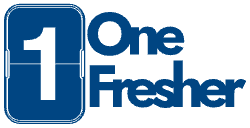1. Clarify Your Career Goals
- Identify your strengths, interests, and values.
- Decide on the industry or role you’re targeting (e.g., marketing, software development, sales, design).
- Set short-term and long-term career goals.
Tip: Use personality or career assessment tools like MBTI or StrengthsFinder for better clarity.
2. Create a Strong Resume and Cover Letter
- Highlight your education, projects, internships, and achievements.
- Use action verbs and quantify results where possible.
- Customize your cover letter for each application.
Pro Tip: Keep your resume to 1 page and always include a LinkedIn profile link.
3. Build and Optimize Your LinkedIn Profile
- Use a professional photo and write a compelling headline and summary.
- Showcase internships, projects, and volunteer work.
- Connect with classmates, professors, and industry professionals.
Bonus: Follow companies you want to work for and engage with their content.
4. Use Multiple Job Portals and Platforms
- Register on sites like:
- India: Naukri, Freshersworld, LinkedIn, Internshala, Apna, Monster
- USA: Indeed, Handshake, Glassdoor, ZipRecruiter, WayUp
- Set email alerts and apply early.
5. Apply for Internships and Entry-Level Roles
- Many companies prefer to hire interns and convert them into full-time employees.
- Don’t overlook contract or part-time roles – they can be stepping stones.
6. Leverage Campus Placement and Alumni Network
- Attend college job fairs, placement drives, and webinars.
- Contact alumni working in your target companies through LinkedIn or alumni portals.
7. Prepare for Interviews Thoroughly
- Practice common interview questions (HR, behavioral, technical).
- Research the company and prepare questions to ask the interviewer.
- Use the STAR method (Situation, Task, Action, Result) to structure your answers.
8. Keep Learning and Upskilling
- Take free or affordable courses on platforms like Coursera, Udemy, edX, or Skillshare.
- Learn tools or certifications relevant to your field (Excel, Power BI, Python, Google Ads, etc.).
9. Stay Organized and Track Your Applications
- Use Excel, Trello, or job tracker apps to track:
- Companies applied to
- Application status
- Interview dates
- Feedback and follow-ups
10. Be Patient and Stay Consistent
- Finding a job takes time. Don’t get discouraged by rejections.
- Review and improve your resume, portfolio, and interview skills with each attempt.
- Stay active in job search communities for support and tips.
💡 Final Thought:
Your first job doesn’t define your entire career — it’s your launchpad. Focus on learning, building experience, and growing your network.
